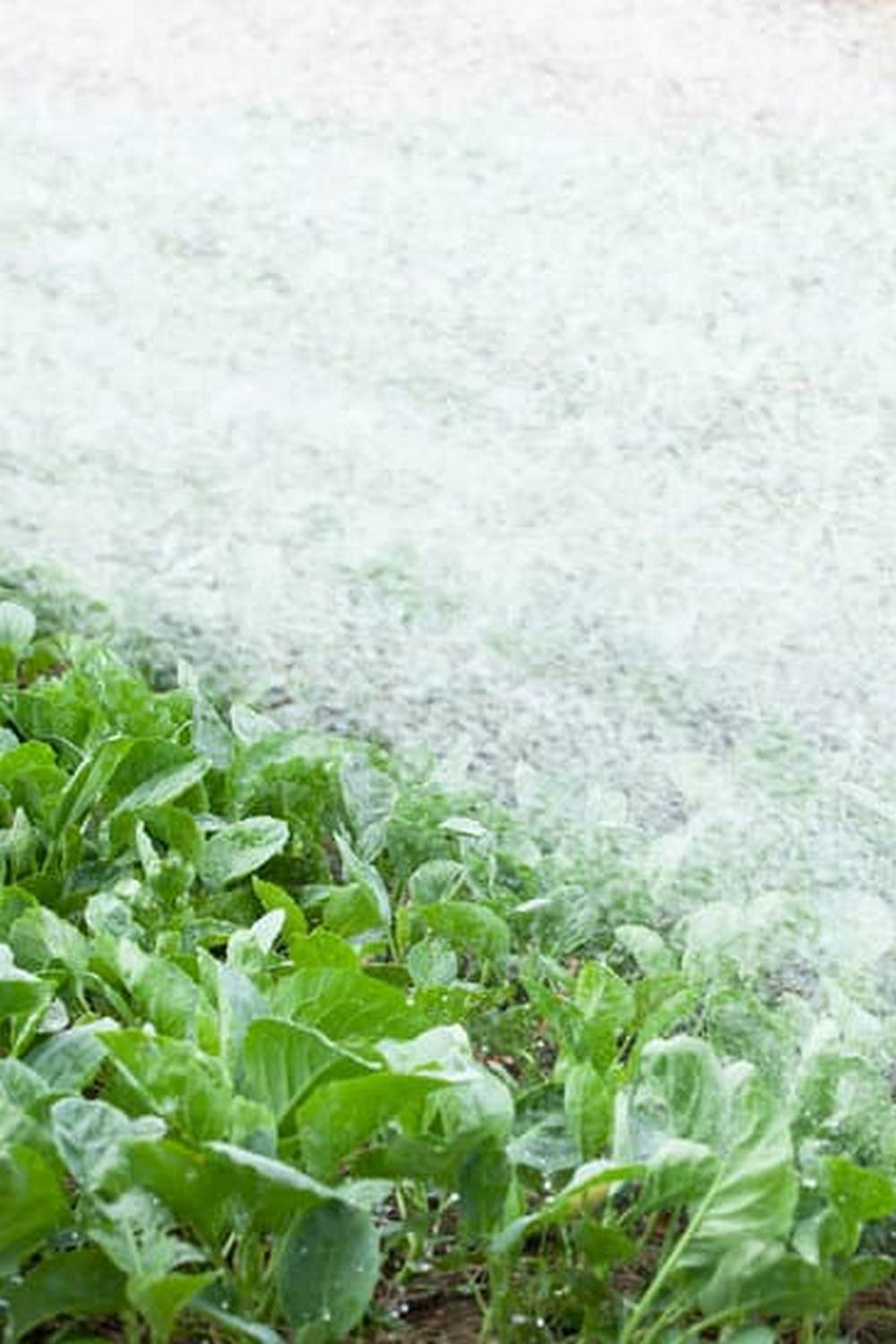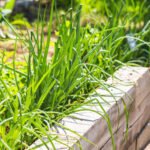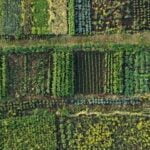Rabbits are adorable creatures that can quickly turn into a nuisance when they invade your vegetable garden. To protect your precious produce, using a rabbit repellent safe for vegetable gardens is essential. These repellents are specifically designed to deter rabbits without causing any harm to your plants or the environment.
Understanding the behavior of rabbits in vegetable gardens is crucial to effectively managing their presence. These furry pests are known for their voracious appetites and can quickly decimate your crops if left unchecked. Not only do they feed on tender vegetables, but they also trample on plants and create burrows, leading to further damage.
The dangers posed by rabbits in vegetable gardens go beyond just ruined crops. Their presence can attract other predators like foxes and coyotes, further threatening the safety of your garden. Additionally, their feces can contaminate produce, putting you at risk of foodborne illnesses. Choosing the right rabbit repellent for your vegetable garden is vital in maintaining a thriving and healthy growing space.
Understanding the Behavior of Rabbits in Vegetable Gardens
Rabbits are notorious for their voracious appetites and love to nibble on various plants, making them a common nuisance in vegetable gardens. Understanding the behavior of rabbits in vegetable gardens is essential in effectively keeping them at bay. Here are some key behaviors of rabbits to consider:
- Rabbits are most active during the early morning and evening, making those times prime foraging periods in your garden.
- They have a keen sense of smell and can detect food from afar, attracting them to your vegetables and herbs.
- Rabbits are nimble and can squeeze through small gaps or fences, allowing them easy access to your garden beds.
To prevent damage to your precious produce, it’s crucial to take proactive measures against rabbits by using effective rabbit repellents. One option that many gardeners swear by is using natural rabbit repellents that are safe for vegetable gardens. These repellents work by deterring rabbits through scent or taste, making your garden less appealing to these furry intruders.
When choosing a rabbit repellent safe for vegetable gardens, there are several factors to consider:
- Effectiveness: Look for repellents that have proven success in deterring rabbits without causing harm to your plants.
- Safety: Ensure that the repellent is safe to use around edibles and won’t harm beneficial insects or other wildlife in your garden.
- Ease of application: Opt for repellents that are easy to apply and won’t require frequent reapplication.
By selecting a reliable rabbit repellent and understanding the behavior of these critters, you can protect your vegetable garden from potential damage and enjoy a bountiful harvest.
The Dangers of Rabbits in Vegetable Gardens and How They Can Impact Your Produce
Rabbits can wreak havoc on vegetable gardens, posing a significant threat to the health and productivity of your plants. These furry pests are known for their voracious appetites and can quickly decimate your carefully cultivated crops if left unchecked. Rabbits typically target tender young shoots, leaves, and fruits, making them particularly damaging to a wide variety of vegetables.
One of the key dangers of having rabbits in your vegetable garden is the potential for extensive damage to your produce. Rabbits have sharp incisors that allow them to easily nibble through plant stems and leaves, leading to stunted growth or even complete destruction of your plants. Additionally, their constant feeding can weaken plants, making them more susceptible to diseases and other pests.
To protect your vegetable garden from the destructive tendencies of rabbits, it is essential to invest in effective rabbit repellent safe for vegetable gardens. This will not only help deter rabbits from feasting on your plants but also ensure that you can enjoy a bountiful harvest without worrying about pest infestations. By choosing a safe and reliable rabbit repellent, you can safeguard your hard work and investment in your vegetable garden.
| Rabbit Repellent Option | Features |
|---|---|
| Natural garlic spray | Repels rabbits with strong odor; safe for vegetable consumption |
| Ultrasonic devices | Emits sound waves that deter rabbits without harming them or plants |
| Mesh fencing | Physical barrier to prevent rabbits from accessing vegetable garden |
Factors to Consider When Choosing Rabbit Repellent for Your Vegetable Garden
When selecting a rabbit repellent for your vegetable garden, it is crucial to consider various factors to ensure the safety of your plants and the environment. Here are some key considerations to keep in mind:
1. Effectiveness: Look for repellents that have been proven to effectively deter rabbits from accessing your vegetable garden. This may include ingredients that emit strong odors or tastes that rabbits find unpleasant.
2. Safety: Since you are growing vegetables intended for human consumption, it is essential to choose a rabbit repellent that is safe for use in vegetable gardens. Opt for products that are labeled as non-toxic and safe for edible plants.
3. Environmentally Friendly: Consider the impact of the rabbit repellent on the environment. Choose products that are eco-friendly and do not harm beneficial insects or other wildlife in your garden.
When searching for a rabbit repellent safe for vegetable gardens, you may come across various options, including both DIY recipes and commercial products. One popular DIY recipe involves creating a mixture of garlic, chili powder, and water to create a potent spray that rabbits find offensive. Commercial options often contain natural ingredients like hot pepper wax or predator urine, which can effectively deter rabbits without harmful chemicals.
Remember to always follow the instructions provided by the manufacturer when applying any rabbit repellent in your vegetable garden, and reapply as needed to ensure continued protection against these pesky critters. With the right repellent choice and proper application techniques, you can maintain a thriving vegetable garden free from unwanted rabbit invaders.
DIY Rabbit Repellent Recipes for Vegetable Gardens
Rabbits can be a significant nuisance in vegetable gardens, as they have a tendency to nibble on plants and vegetables, causing damage to your precious crops. One effective way to deter these furry pests from wreaking havoc in your garden is by using homemade rabbit repellents. Not only are DIY rabbit repellent recipes cost-effective, but they also offer a safer alternative to chemical-based solutions that may be harmful to both the environment and your produce.
One popular DIY rabbit repellent recipe involves creating a mixture of water and cayenne pepper. The capsaicin in the cayenne pepper acts as a natural deterrent for rabbits due to its spicy scent and taste. To make this concoction, simply combine water with a generous amount of cayenne pepper powder in a spray bottle. Shake well before spraying onto your plants and reapply after rainfall or every few days for optimal effectiveness.
Another homemade rabbit repellent that can be easily made at home is garlic spray. Rabbits have a strong aversion to the smell of garlic, making it an excellent choice for keeping them at bay. To make garlic spray, finely chop several cloves of garlic and let them steep in hot water overnight. Strain the mixture the next day and transfer it into a spray bottle. Apply this garlic-infused solution on plant leaves to create a protective barrier against rabbits.
Lastly, consider using vinegar as a natural rabbit repellent in your vegetable garden. The strong odor of vinegar is offensive to rabbits, deterring them from feasting on your crops. Mix equal parts of water and white vinegar in a spray bottle and mist it over your plants regularly. This homemade remedy is not only safe for your vegetables but also serves as an eco-friendly solution to keep pesky rabbits away from your garden sanctuary.
| DIY Rabbit Repellent Recipe | Ingredients |
|---|---|
| Cayenne Pepper Spray | Water, Cayenne Pepper Powder |
| Garlic Spray | Garlic cloves, Water |
| Vinegar Solution | Water, White Vinegar |
Commercial Rabbit Repellent Options for Vegetable Gardens
When it comes to protecting your vegetable garden from pesky rabbits, using a commercial rabbit repellent can be a convenient and effective solution. There are various options available in the market that are specifically designed to deter rabbits from feasting on your precious produce. These commercial rabbit repellents are formulated with ingredients that emit scents or tastes that rabbits find unpleasant, ultimately encouraging them to stay away from your vegetable garden.
One popular type of commercial rabbit repellent is a spray that can be easily applied to the plants in your vegetable garden. These sprays often contain natural ingredients like garlic, pepper, or dried blood, which rabbits dislike.
By regularly spraying your plants with this type of repellent, you can create a barrier that deters rabbits from munching on your vegetables. Additionally, some commercial rabbit repellents come in granular form, allowing you to sprinkle them around the perimeter of your garden for added protection.
Another option for commercial rabbit repellents is ultrasonic devices that emit high-frequency sound waves undetectable by humans but irritating to rabbits. These devices can be strategically placed around your vegetable garden to create a deterrent zone that keeps rabbits at bay. While these ultrasonic devices may require an initial investment, they offer a low-maintenance solution for keeping rabbits out of your garden without the need for constant reapplication like other types of repellents.
In choosing a commercial rabbit repellent for your vegetable garden, it’s important to consider factors such as the size of your garden, the severity of the rabbit problem in your area, and any potential risks to other wildlife or pets. It’s also advisable to read and follow the instructions provided by the manufacturer for proper application and dosage.
By selecting a suitable commercial rabbit repellent and using it correctly, you can effectively protect your vegetable garden and enjoy a bountiful harvest free from rabbit damage.
Tips for Proper Application of Rabbit Repellent in Vegetable Gardens
Choosing the Right Rabbit Repellent
When it comes to selecting a rabbit repellent for your vegetable garden, it is essential to choose a product that is safe for both your plants and the environment. Look for repellents that use natural ingredients such as garlic, capsaicin, or peppermint, as these are effective in keeping rabbits away without harming your produce. Additionally, opt for products that are specifically labeled as “safe for vegetable gardens” to ensure that they won’t have any negative impact on your crops.
Proper Application Techniques
Once you have chosen the right rabbit repellent for your vegetable garden, it’s crucial to apply it correctly to maximize its effectiveness. Start by reading and following the manufacturer’s instructions carefully to prevent any potential damage to your plants. Most repellents can be sprayed directly onto the leaves and soil around your garden beds, but be sure to reapply after rainfall or every few weeks for continuous protection.
Creating a Barrier
In addition to using rabbit repellents, consider creating physical barriers around your vegetable garden to further deter these pests. Install fencing made of chicken wire or hardware cloth at least two feet high around the perimeter of your garden to prevent rabbits from accessing your plants.
Make sure the fencing is buried at least six inches into the ground to stop them from burrowing underneath. This added measure can work in conjunction with repellents to provide extra protection for your vegetables.
By following these tips for proper application of rabbit repellent in vegetable gardens and considering additional protective measures such as barriers, you can effectively keep rabbits at bay and safeguard your produce from their destructive behavior. With a well-maintained pest control routine, you can enjoy a thriving vegetable garden free from unwanted intruders and ensure a bountiful harvest come harvesting season.
Other Ways to Protect Your Vegetable Garden From Rabbits
Install Fencing
One of the most effective ways to protect your vegetable garden from rabbits is by installing fencing around the perimeter. Make sure the fence is buried at least a few inches into the ground to prevent rabbits from burrowing underneath. Opt for fencing with small gaps or chicken wire to prevent rabbits from squeezing through. You can also consider adding a floppy top to the fence, as rabbits are less likely to jump over a barrier that appears unstable.
Create Physical Barriers
In addition to fencing, you can create physical barriers around individual plants or rows in your vegetable garden. Use materials like hardware cloth, row covers, or even plastic bottles with the bottoms cut out to protect your crops from rabbit damage. These barriers should be placed directly around the plants and secured into the ground to prevent any gaps that rabbits could exploit.
Remove Attractants
One way to deter rabbits from entering your vegetable garden is by removing any attractants that may draw them in. This includes keeping your garden clean and free of fallen fruits or vegetables, as well as removing any potential hiding spots where rabbits may seek shelter. By eliminating these temptations, you can make your garden less appealing to rabbits and reduce the likelihood of them causing damage to your crops.
By employing a combination of these methods and using a reliable rabbit repellent safe for vegetable gardens, you can effectively protect your produce and maintain a flourishing garden free from rabbit interference. Remember that consistency is key when it comes to keeping rabbits at bay, so be diligent in implementing these protective measures throughout the growing season.
Conclusion
In conclusion, protecting your vegetable garden from rabbits is crucial to ensure a bountiful harvest. By utilizing rabbit repellent safe for vegetable gardens, you can deter these pesky intruders and safeguard your produce. Understanding the behavior of rabbits in vegetable gardens and the potential dangers they pose is essential in selecting the most effective repellent for your needs.
When choosing a rabbit repellent, factors such as safety for both plants and animals, ease of application, and longevity of protection should be taken into consideration. Whether opting for a DIY rabbit repellent recipe or a commercial option, the key is to consistently apply the deterrent to create a barrier that discourages rabbits from entering your garden.
By following proper application techniques and exploring additional methods like fencing or natural barriers, you can maintain a rabbit-free vegetable garden and enjoy the fruits of your labor without worrying about unwanted visitors. With a proactive approach to pest management and the right rabbit repellent on hand, you can protect your vegetables and promote a thriving garden environment.
Frequently Asked Questions
What Can I Put Around My Plants So the Rabbits Won T Eat Them?
One effective way to protect your plants from rabbits is by using physical barriers like chicken wire or hardware cloth. These materials can be placed around your plants to create a barrier that rabbits cannot easily penetrate.
What Is the Cheapest Way to Keep Rabbits Out of Your Garden?
The cheapest way to keep rabbits out of your garden is by using homemade remedies like a mixture of garlic and hot peppers sprayed onto your plants. This natural solution acts as a deterrent for rabbits without having to spend money on expensive commercial products.
What Can I Use in My Garden to Keep the Rabbits Out?
There are several options you can use in your garden to keep rabbits out, such as planting rabbit-resistant flowers and herbs like marigolds, lavender, or rosemary. Additionally, creating raised garden beds or installing motion-activated sprinklers can also help deter rabbits from entering your garden and damaging your plants.

If you’re looking to get into vegetable gardening, or are just looking for some tips on how to make your current garden better, then you’ve come to the right place! My name is Ethel and I have been gardening for years. In this blog, I’m going to share with you some of my best tips on how to create a successful vegetable garden.





